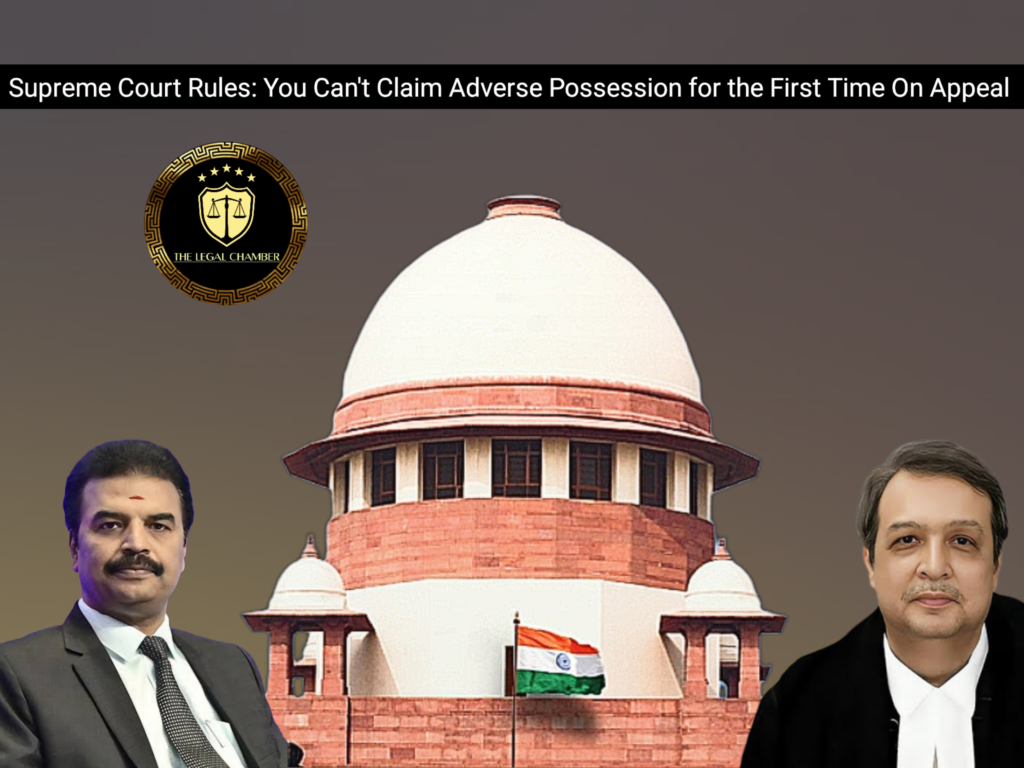The Supreme Court reaffirmed that a plea of title by adverse possession cannot be raised for the first time at the appellate stage if it was not specifically pleaded in the plaint, framed as an issue, and proven during trial. Such a surprise claim prejudices the opposite party and is impermissible as a decision must be based on the case pleaded.
Facts Of The Case:
The case originated from a title suit filed in 1999 by the plaintiffs (Kishundeo Rout & Ors.) against the defendants (Govind Rao & Ors.). The plaintiffs sought a declaration that a 1997 sale deed executed by the original plaintiff, Sudama Devi, in favour of the defendants was bogus, inoperative, and fit for cancellation. They also prayed for confirmation of their possession and a permanent injunction against the defendants from claiming ownership. The trial court dismissed the suit in 2018, upholding the validity of the sale deed. On first appeal, the District Judge reversed the decision. Surprisingly, the appellate court framed an additional issue suo motu on adverse possession, a claim never pleaded by either party. It held that even if the sale deed was valid, the plaintiffs’ adverse possession since their alleged forceful takeover in 2000 had matured by 2012, thus extinguishing the defendants’ title. The High Court allowed the defendants’ second appeal, setting aside the first appellate court’s judgment. It ruled that introducing and deciding on adverse possession without foundational pleadings or a trial on the issue was legally impermissible. The plaintiffs then appealed to the Supreme Court.
Procedural History:
The procedural history began with the institution of Title Suit No. 35 of 1999 by the plaintiffs in the Court of the Civil Judge, Deoghar. The trial court dismissed the suit in 2018. The plaintiffs then preferred a First Appeal (Civil Appeal No. 64 of 2018) in the court of the District Judge, Deoghar. The First Appellate Court allowed the appeal and decreed the suit by introducing and deciding on an unpleaded issue of adverse possession suo motu. Aggrieved by this, the defendants filed a Second Appeal (No. 151 of 2022) in the High Court of Jharkhand. The High Court allowed the appeal in 2025, setting aside the first appellate court’s judgment and restoring the trial court’s decree. The plaintiffs then filed the present Special Leave Petition (Civil) No. 22070 of 2025 in the Supreme Court of India, which was ultimately dismissed.
READ ALSO:Supreme Court Decides: Who Pays When a Car Insurance Policy is Cancelled?
Court Observation:
The Supreme Court observed that the foundation for a plea of adverse possession must be laid in the pleadings, with specific issues framed and tried at trial. It emphasized that such a plea, being fact-intensive, cannot be raised for the first time at the appellate stage as it prejudices the opposite party who is denied an opportunity to lead rebuttal evidence. The Court reaffirmed the fundamental legal principle that a decision must be founded upon the case made out in the pleadings and cannot be based on grounds outside them. It held the first appellate court’s action of framing an issue on adverse possession suo motu and decreeing the suit on that basis was legally unsustainable.
Final Decision & Judgement:
The Supreme Court dismissed the special leave petition and upheld the judgment of the High Court. It affirmed that the First Appellate Court had erred in law by framing an issue on adverse possession suo motu and basing its decision on this unpleaded ground. The final decision thus restored the original trial court’s decree from 2018, which had dismissed the plaintiffs’ suit after upholding the validity of the sale deed executed by Sudama Devi in favour of the defendants.
Case Details:
Case Title: Kishundeo Rout & Ors. vs. Govind Rao & Ors.
Citation: 2025 INSC 956
Appeal Number: Special Leave Petition (Civil) No. 22070 of 2025 (Diary No. 30361)
Date of Judgement: 8th August, 2025
Judges/Justice Name: Justice J.B. Pardiwala and Justice R. Mahadevan
Download The Judgement Here
